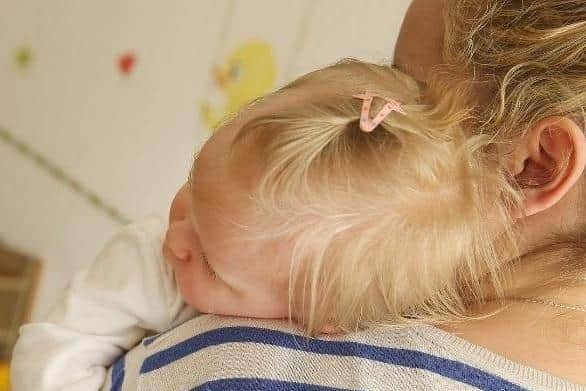Warning to parents as number of children treated for Kawasaki disease doubles – the signs you must know
and live on Freeview channel 276
Kawasaki disease is the leading cause of acquired heart disease in children aged under five in the UK. It can be fatal if not treated in time.
Without treatment, around one in four children get heart complications and this can be fatal in about two to three per cent of cases, the NHS says.
Advertisement
Hide AdAdvertisement
Hide AdAround eight in every 100,000 children develop Kawasaki disease in the UK each year.


It's more common in boys than girls and previous research found that 72 per cent of children with the condition were under the age of five.
NHS Blood and Transplant (NHSBT)is highlighting the figure for Kawasaki disease Awareness Day today, January 26, to urge more people to donate plasma, as only half the target amount of plasma is currently being donated.
The symptoms are a high temperature that lasts for five days or longer, and possibly one or more of the following symptoms:
A rash
Swollen glands in the neck
Dry, red cracked lips
A swollen, bumpy, red tongue
Red inside the mouth and at the back of the throat
Swollen and red hands and feet
Red eyes.
Advertisement
Hide AdAdvertisement
Hide AdKawasaki disease may be linked genetic factors and also how the body responds to infections. The blood vessels around the heart can become inflamed. The increase in cases over 2020/21 may have been driven by coronavirus infections.
Plasma is the liquid part of blood. It is rich in antibodies, which fight infections. The antibodies are concentrated into immunoglobulin medicine, which stabilises the immune response and reduces inflammation.
Currently, NHSBT has 5,850 plasma donors, but this is only just over half of how many donors are needed (around 10,200).
Health Minister Neil O’Brien said: “More plasma donors are needed to treat Kawasaki disease and we are working closely with NHS Blood and Transplant to boost supplies so we can provide the best possible care to patients. "Thank you to existing donors who have generously come forward. If you can, please consider donating blood or plasma – it could save someone’s life.”